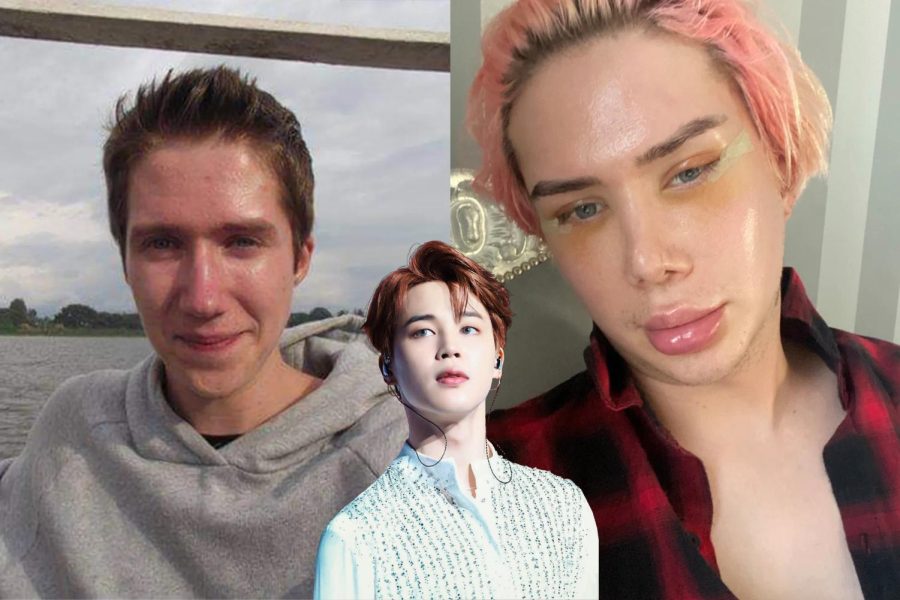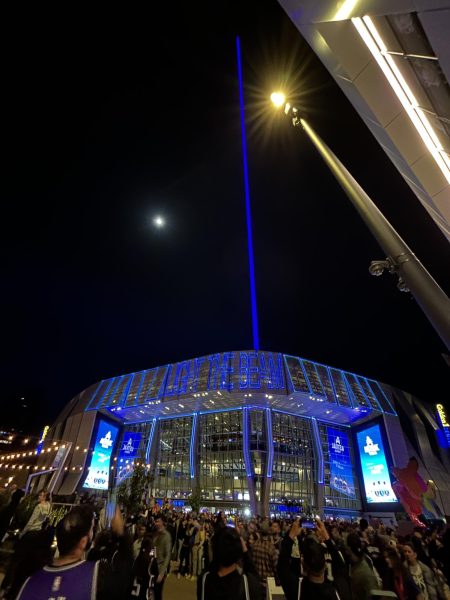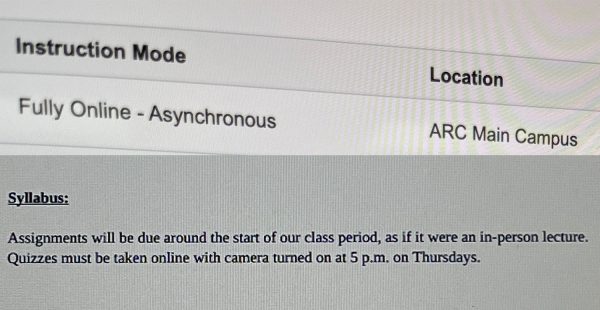Asianfishing needs to stop
Asianfishing enables the hyper-sexualization and fetishization of Asian women
Oli London, a British influencer and singer who is white paid thousands of dollars on cosmetic surgeries in an attempt to look like Korean pop star Jimin from BTS. London claims to be Korean and deceives the media and their followers by pretending to be someone they’re not. (Photo illustration by Madison Duong)
Asianfishing is the act of a non-Asian person altering their appearance to look Asian. This can be done with the use of makeup, photo editing and pretending to be Asian online.
Asianfishing needs to stop because it is insensitive to Asian people. It may not be a popular trend but it needs to stop before it becomes more common for people to appropriate the Asian race.
An example of Asianfishing is Oli London, who is a white British influencer and singer pretending to be Korean. They have had plenty of cosmetic procedures in hopes to look like Korean pop star, Jimin Park from BTS.
Oli London claims they are transracial and the founder of the transracial movement.
Pretending to be Asian is not okay, it is deceitful to everyone and disrespectful to the Asian community.
Asianfising is especially not okay when people are using Asian culture as a way to express sexual intent.
Asian women are far too fetishized as it is, so Asianfishing is offensive because not only is it deceiving to people, but Asian women and their traits are also continuing to be hypersexualized.
Asian beauty standards for women are already problematic and unrealistic. The idea that Asian women have to be skinny, pale, submissive, young and vulnerable to cater to the male gaze is absolutely ridiculous.
Many of these unrealistic Asian beauty standards are seen in mainstream media such as Japanese anime and K-Pop.
The majority of women in anime are typically written and designed to please the male gaze. This can be seen by the revealing clothing worn, unrealistic bust sizes, lolicon characteristics (a Japanese term that stands for “Lolita complex” which is the fascination and attraction to young childlike looking girls that are portrayed in sexual contexts) and many more elements that are harmful standards for real women and the expectations set upon them.
Another look at what unrealistic Asian beauty standards looks like can be found by taking a look at most female K-Pop stars. They tend to have pale skin, perfect hair, slim bodies, long legs and double eyelids.
K-Pop and anime are just two examples of what Asian entertainment influence can do to encourage many young Asian women to look like what they see on the screen, even though much of what is shown is unrealistic and can cause damaging issues to sense of self-worth, confidence and body image.
As non-Asian people alter their appearances to portray those Asian beauty standards and expectations, they are contributing to the ongoing issue of Asian women being continuously pressured to look a certain way and be hypersexualized and fetishized at the same time while not understanding the damage it causes.
The act of Asianfishing also indirectly supports the hypersexualization and fetishization of Asian women and puts Asian women at risk, as they will continue to suffer the consequences and fall under the expectations set for the male gaze.
The fox eye trend is another example of how non-Asian people portray themselves to be Asian. The fox eye trend is where there is an intent to make eyes appear more slanted and smaller, similar to the common small, monolid and slanted eyes that some Asian people have.
A form of the fox eye trend is where people intentionally use their hands to pull their eyes further which is very similar to the racist mocking of physical traits that many Asians experience.
Growing up with Asian eyes people would mock me by pulling their eyes back, so it feels odd to see that become a beauty standard now.
How could something I used to be ridiculed for, become something many people now want?
Treating any race that isn’t yours like an aesthetic or fetishizing it is not okay because you cannot change your race, you can only appreciate it and not appropriate it.
All races should all be appreciated. But, if you’re claiming to be a race that you’re not, you are hurting others by not understanding the hardships and trauma that race has gone through.
There is a huge difference between cultural appreciation and cultural appropriation; which may be hard for some people to understand. Appreciating culture is learning and experiencing something new, not stealing it. Appropriating is stealing something and turning it into something it’s not intended to be.
Although people shouldn’t get canceled so easily for mistakes they have yet to learn about, it is always important to have an open and educated mind especially when races and cultures that aren’t yours come into play.
Some people are not educated and may not know that what they’re doing could be offensive. Instead of canceling them, people should learn to educate them so that they can learn from their mistakes.
However, any form of trying to be another race except your own is offensive and disrespectful. No one should be able to fake their identity online and steal another race or culture and claim it to be who they are.
















Saige • Oct 14, 2022 at 4:51 pm
It’s not all about sex. Attractive Asian faces are genuinely beautiful to me, as a non-Asian. The eyes, in particular. I know a lot of Asians hate their eyes, and it makes me sad when it isn’t impairing their vision. Other races don’t come even close to beauty to me, no matter how attractive they are. We’re also disgustingly hairy, and here in America, hygiene leaves a lot to be desired. I don’t think it’s wrong to want to look Asian if that’s who you really are inside. Just how it’s not wrong to want to be a man or woman if that’s who you really are inside. None of these surgeries are a joke to recover from, so if someone makes the choice to undergo this much pain to be someone they wish they were, it’s a serious one and shouldn’t be looked down on. Ther are plenty of ugly predators in the sea, and women are hypersexualized all over the place, even when they’re not being subordinated by society (like what’s going on in many American states in 2022).